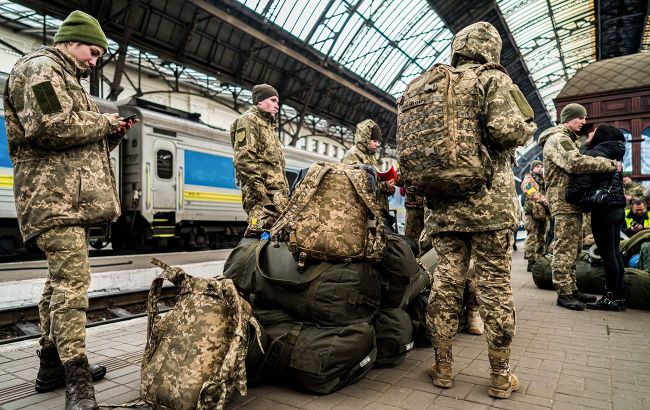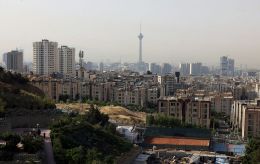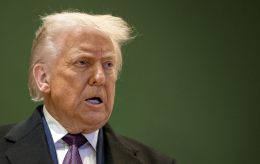Ukraine gears up for mobilization changes: Proposals presented and what Zelenskyy says
 Photo: Ukraine is preparing changes in mobilization (Getty Images)
Photo: Ukraine is preparing changes in mobilization (Getty Images)
In Ukraine, work is underway to make changes to the rules of mobilization, military registration, and the process of military service. The President has emphasized the need for these changes, and statements from officials increasingly suggest that new initiatives will be announced soon.
So, what is known about possible changes in mobilization, and how do Zelenskyy and Zaluzhnyi respond to them? Read more in the material by RBC-Ukraine below.
During the preparation of this material, statements from the People's Deputy (Voice faction), Secretary of the Defense Committee Roman Kostenko, Commander-in-Chief of the Armed Forces of Ukraine Valerii Zaluzhnyi, President Volodymyr Zelenskyy, and Secretary of the National Security and Defense Council Oleksiy Danilov were used.
What is known about the bills that Rada is working on
As reported, the Ukrainian government is preparing a comprehensive mobilization plan, which may be presented in the near future.
In particular, one of the documents related to changes has already been registered in parliament, and the other is in the final stage of approval in the Rada.
About mobilization
Regarding mobilization, one of the changes involves clarifying what a special period is, namely: from the adoption of a decision to conduct mobilization until the time of demobilization and the end of hostilities.
It is also mentioned that after the introduction of the legal regime of martial law, conscripts should appear at the territorial recruitment and social support centers (TRCs and SSCs), and reservists should report to the respective military units.
Vacations, pensions
One of the bills already registered in the Rada concerns ensuring the social protection rights of military personnel and police officers. It regulates the information that military personnel can disseminate and addresses issues of material support and leave (specifically, leave for military personnel upon the birth of a child, which currently does not exist, and leave for up to 12 months after injury and treatment).
Additionally, it pertains to the calculation of the military service period for pension accrual. In the case of military service during a state of war, one month counts as two. The bill also outlines the calculation mechanism for those directly participating in combat and those who have been in captivity.
Summonses by mail
Members of Parliament are also working on clarifying the rights of conscripts and TRCs and SSCs representatives during mobilization events.
Specifically, Ukrainians may be required to come to TRCs and SSCs independently and bring military registration documents with them. MPs do not rule out the possibility of sending conscription notices by mail and registered mail.
This means that notifications of the arrival of a registered letter will be sent to the mailbox, and the letter with the summons will be handed to the person personally by the respective postal service representatives.
At the same time, parliamentarians want to specify that summonses may be delivered not only by TRCs and SSCs representatives but also through local self-government bodies and local executive authorities. Although their participation in mobilization events is legally provided, in practice, they often avoid these responsibilities. Military administrations' representatives may also hand out summonses.
On Student deferments and more
Parliamentarians are working on clarifying the grounds for deferment from conscription into military service during mobilization. The aim is to eliminate loopholes in current legislation that conscripts exploit for misuse.
Currently, if a conscript subject to mobilization has an incapacitated or underage child, a spouse in the 1st or 2nd disability group, or other incapacitated family members (first-degree relatives, such as parents), they are entitled to deferment.
This provision remains unchanged. However, it is proposed to grant deferment to conscripts if there is no one legally responsible for caring for these individuals.
At the same time, the provision regarding parents of three or more underage children remains unchanged.
Additionally, the bill aims to regulate the right to deferment for students pursuing higher education. This involves canceling deferments from mobilization for those who decide to pursue another higher education degree.
Context: Individuals who, after obtaining one higher education degree, pursue a second degree of the same or lower level will not be eligible for deferment. However, if a person advances to the next level of education, for example, pursuing a postgraduate degree after a master's degree, then deferment remains applicable.
Demobilization
Discussions are ongoing in the Rada regarding demobilization (determining the length of service after which a servicemember is eligible for release). This issue is considered one of the more challenging ones since such practices were not previously applied during full-scale wars.
The President himself refers to demobilization as the "number one issue."
"So far, I haven't seen demobilization there, although I consider it the number one issue... I would really like our military leadership to understand all these challenges. We cannot lose the bravest, the most powerful people, their morale. If we talk about additional mobilization forces, we need to find demobilization processes... It should be substantive, with specifics, and great respect for the warriors," he stated during a press conference.
As explained by RBC-Ukraine, Roman Kostenko, a People's Deputy (Voice faction) and Secretary of the Defense Committee, the proposed text by deputies includes demobilization after 18 months. There was also a separate suggestion for demobilization after 36 months. However, the main positions on demobilization are decided by the President in collaboration with the Commander-in-Chief. Therefore, the vision for demobilization must come from them.
On lowering the conscription age
As reported by RBC-Ukraine, there are currently no proposed changes to the age limit. Presently, men aged 18 to 27 are subject to conscription for compulsory military service (which is not conducted in times of war). Consequently, mobilization for men within this age range is not carried out. However, they can voluntarily join the military.
Earlier, the parliament adopted changes allowing the mobilization of individuals without military training from the age of 25. However, President Zelenskyy did not sign the document.
During a recent extensive press conference, the President was asked about the rationale for mobilizing individuals under 27, and here is what he responded:
"As for 25 years old - If all arguments are presented, and I see that it is necessary, then I will agree with it."
How Zelenskyy reacts to the proposed changes
In one of his traditional evening addresses, the President emphasized, "everyone understands that changes are needed in the matter of mobilization in Ukraine."
According to him, it is not just about the quantity of those who can be mobilized. It is a question of demobilization terms and for those who will join the Ukrainian army later.
"And this is a question of conditions. These are complex things that the military leadership and the Ministry of Defense should work out, they should be presented to the Staff for approval... I am waiting for comprehensive decisions," stated Zelenskyy.
Moreover, he revealed that the Chief of General Staff and the Armed Forces offered to mobilize an additional 450-500 thousand people during the Staff meeting.
"Their view was, they proposed mobilizing an additional 450-500 thousand people. It is a serious figure, and I said that I need more arguments because it is a matter of people, justice, defense capability, and finances," Zelenskyy asserted.
However, the head of the state mentioned that mobilization in such a format would cost Ukraine an additional 500 billion hryvnias. Therefore, it is crucial to thoroughly examine the details of the matter.
For more information about the statement regarding "450-500 thousand" and what it could imply, read the material by RBC-Ukraine.
Zaluzhnyi's view on mobilization in Ukraine
At the same time, the Commander-in-Chief of the Armed Forces of Ukraine, Valerii Zaluzhnyi, believes that the mobilization process should be brought back to the framework that existed earlier.
"Regarding the issue of mobilization, it's not about strengthening it but returning it to the limits, the frameworks that were in place before. Because now it's a problem for those people who are fighting on the front line, someone has to replace them, someone has to help them," he recently stated in a comment to RBC-Ukraine.
When to expect changes
According to the Secretary of the National Security and Defense Council of Ukraine, Oleksiy Danilov, new legislative changes in mobilization in Ukraine are expected in the very near future.
He noted that a new program is currently being launched, which has been discussed several times at the Staff, and now the issue is being comprehensively developed.
"I wouldn't want to give a final answer now because, as I emphasize again, it's in the process right now. The only thing that can be said is that at the next meeting of the Staff, the president instructed to have this issue finally prepared," Danilov stated in an interview with the BBC on December 12.

